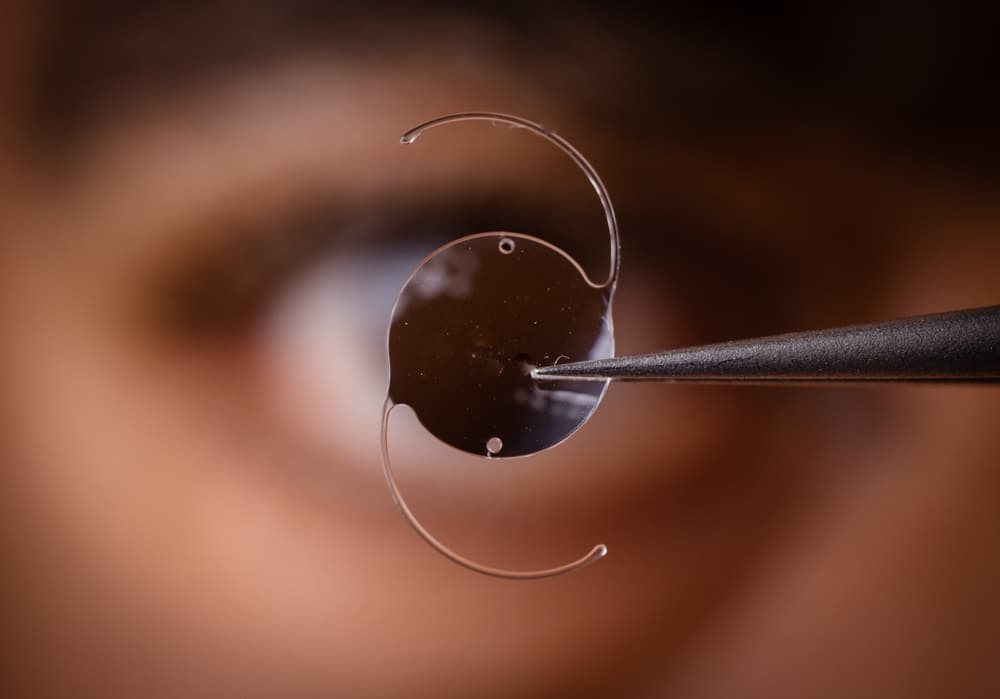How Does Cataract Surgery Improve Your Vision?

As you age, your eyes undergo various changes, and one of the most common age-related eye conditions is cataracts. Cataracts can significantly impact your vision, making everyday activities challenging.
Fortunately, cataract surgery is a safe and effective way to restore your vision and improve your quality of life. Keep reading to learn more about what cataracts are, how cataract surgery works, and how to determine if you need this procedure!
What Are Cataracts?
A cataract is a clouding of the eye’s natural lens, which lies behind the iris and the pupil. The lens is responsible for focusing light onto the retina, allowing you to see clearly.
When a cataract develops, the lens becomes increasingly cloudy, causing your vision to become blurry, hazy, or less colorful. Cataracts typically develop slowly and may not initially affect your vision.
However, as the condition progresses, you may experience symptoms such as:
- Cloudy or blurred vision
- Difficulty seeing at night
- Sensitivity to light and glare
- Seeing halos around lights
- Fading or yellowing of colors
- Double vision in one eye
While cataracts are most commonly associated with aging, other factors can contribute to their development, including diabetes, smoking, prolonged exposure to ultraviolet light, and certain medications.
What is Cataract Surgery?
Cataract surgery is a procedure that involves removing the clouded lens and replacing it with an artificial lens called an intraocular lens (IOL). This procedure is typically performed on an outpatient basis, meaning you can go home the same day.
Cataract surgery is one of the most common and successful surgical procedures performed today. It is generally safe, has a low risk of complications, and has a high success rate in improving vision.
How Does Cataract Surgery Work to Help Your Vision?
During cataract surgery, your eye surgeon will make a tiny incision in the front of your eye and use ultrasound waves to break up the clouded lens. The fragmented lens is then gently suctioned out of the eye, and an artificial IOL is inserted to replace the natural lens.
The IOL is a clear, plastic lens that is designed to stay in place permanently. There are various types of IOLs available, including monofocal, multifocal, and toric lenses.
Your eye surgeon will help you choose the best type of IOL for your individual needs and lifestyle. After cataract surgery, you may experience some temporary discomfort, such as itching, mild pain, or a feeling of grittiness in the eye.
These symptoms usually subside within a few days. Your vision will gradually improve as your eye heals, and most people can resume their normal activities within a week.
The benefits of cataract surgery include:
- Clearer, sharper vision
- Improved color perception
- Better night vision
- Reduced dependence on glasses or contact lenses
How Do I Know If I Need Cataract Surgery?
If you suspect that you have cataracts, the first step is to schedule a comprehensive eye exam with your eye doctor at Ginsberg Eye. During the exam, your eye doctor will assess the severity of your cataracts and determine how much they are affecting your vision.
In the early stages of cataracts, your eye doctor may recommend managing the condition with updated glasses prescriptions, better lighting, or anti-glare sunglasses. However, if your cataracts are significantly impacting your daily life and interfering with activities such as reading, driving, or watching television, they may recommend cataract surgery.
The decision to undergo cataract surgery is ultimately a personal one that should be made in consultation with your eye doctor. They will help you weigh the potential benefits and risks of the procedure and determine if it is the right choice for you.
Are you experiencing symptoms of cataracts or have concerns about your vision? Schedule an appointment with your eye doctor at Ginsberg Eye in Naples, FL, to discuss your options and determine if cataract surgery is right for you!





